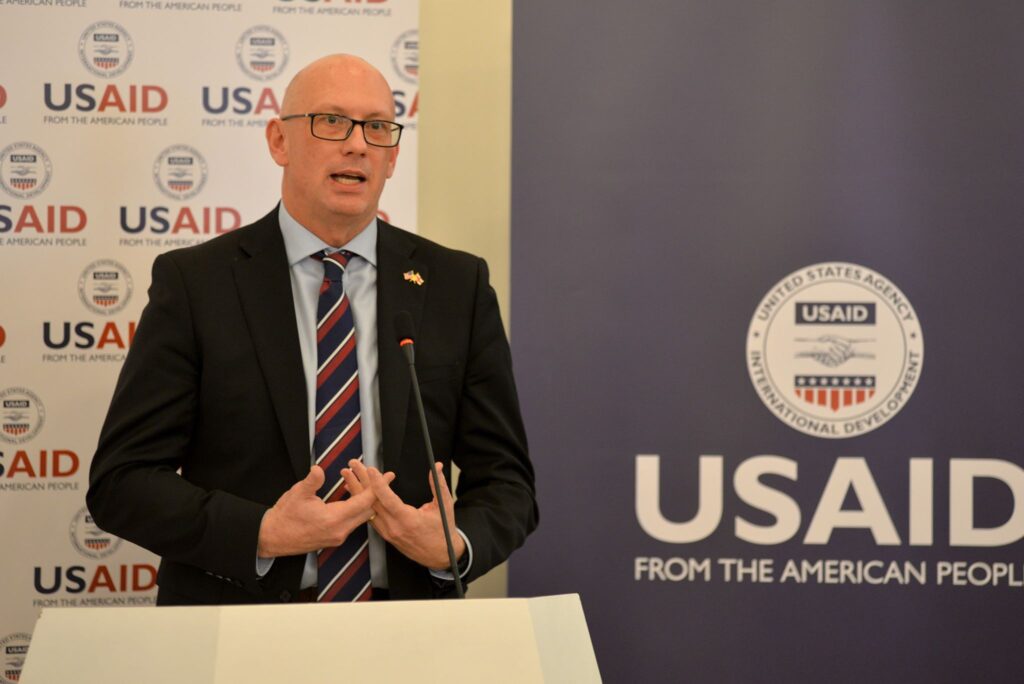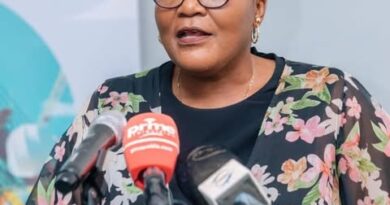USAID Mission Director Peter Wiebler Affirms U.S. Commitment to Zambia’s Economic Development at National Budget Symposium
In his remarks at the National Budget Symposium on October 2nd, 2023, USAID Mission Director Peter Wiebler conveyed the United States government’s unwavering commitment to supporting Zambia’s economic development.
Mr. Wiebler began by congratulating the Honorable Minister of Finance and National Planning for their work in formulating and presenting the critical 2024 budget, which is essential for the government’s economic stabilization efforts.
He highlighted the strong partnership between the United States government, through USAID, and the Ministry of Finance and National Planning. This collaboration extended to co-sponsoring the budget symposium and other platforms promoting dialogue on economic, fiscal, and tax issues that impact the people of Zambia.
Mr. Wiebler reiterated the U.S. government’s commitment to enhancing public financial management, domestic revenue mobilization, and tax policy in Zambia. This commitment is exemplified through initiatives like the USAID Revenue for Growth (R4G) program and the new USAID Good Financial Governance (GFG) program, conducted in collaboration with the European Union and Germany.
The U.S. also provides support across various sectors at both national and local government levels.
He commended the Zambian government for its accomplishments in stabilizing the economy, including a successful debt restructuring agreement under the IMF’s Extended Credit Facility (ECF) program. The U.S. government pledged continued support to help Zambia meet IMF program benchmarks and macroeconomic targets.
Mr. Wiebler appreciated the government’s allocation of funds in the 2024 budget for public services and private sector development. He highlighted increased funding for education, health, local government development, and support for local communities through the Constituency Development Fund and the Local Government Equalization Fund.
He stressed that U.S. financial assistance comes in the form of grants rather than loans, aimed at promoting Zambia’s self-reliance and economic resilience. This assistance encompasses various sectors, including health, education, private sector development, infrastructure, and local communities, with investments exceeding $500 million.
Mr. Wiebler acknowledged challenges facing Zambia, such as tax arrears and debt issues, and expressed support for prudent debt management and resolving these challenges.
He emphasized the importance of addressing corruption to preserve resources for development and attract private investment, encouraging scrutiny of the budget’s allocation for institutions responsible for preventing and enforcing accountability for corruption.
Further investments in strengthening institutions, enforcement, oversight, and accountability systems were highlighted as critical to eradicating corruption and advancing Zambia’s economy.
Mr. Wiebler called for improved budget transparency, implementation, and reporting, underlining their significance in raising revenue and ensuring fiscal prudence. He offered assistance in strengthening budget transparency and reporting.
He further expressed readiness to support Zambia in amending tax laws and improving budget transparency and reporting. He stressed that the U.S. government’s partnership with Zambia extends to multiple sectors and initiatives designed to support the country’s economic growth and development.



